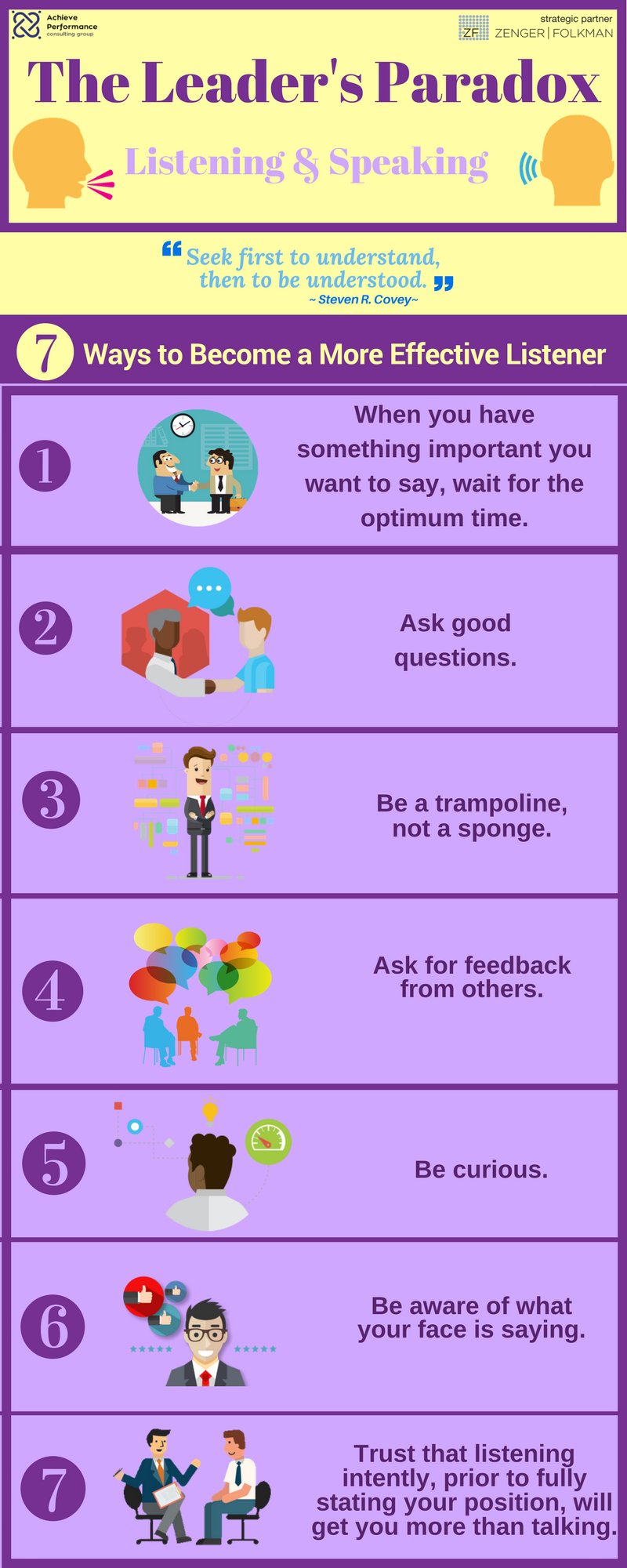Listening And Speaking: The Leader’s Paradox

Listening And Speaking: The Leader’s Paradox

The Role of an Elder in Modern Business


Listening And Speaking:
The Leader's Paradox
The Listening Advantage
The data is extremely compelling, showing that a preference for listening (and listening before talking) is directly tied to a leader’s effectiveness. Steven R. Covey, in his book The 7 Habits of Highly Effective People, expressed this principle in his advice to “seek first to understand, then to be understood.” Few doubted the wisdom of this advice; our results provide clear and metric evidence of the power of effective listening.As we talk to leaders about how to be an effective listener, we frequently find that people know the typical tips and advice for listening better. The question then becomes, “If you know how to listen, why aren’t you doing it better?”
The short answer is, leaders, don’t actually know how to effectively listen. To that end, here are a few tips we’ve compiled on ways to be better listeners.
7 Ways to Become a More Effective Listener
1. When you have something important you want to say, wait for the optimum time.
Having a good thought is important; injecting it at exactly the right moment can be important as well.2. Ask good questions.
Good listening is much more than remaining silent while the other person talks. It requires asking good questions and showing genuine interest in people’s responses as well.3. Be a trampoline, not a sponge.
Good listening goes beyond being able to repeat exactly what another person says; it also requires providing a new perspective. You are adding energy to the conversation. Become a trampoline by propelling the energy forward.4. Ask for feedback from others.
The best listeners provide feedback to other people that includes interest, excitement, reactions, disagreements, and suggestions. Because the best conversations are not one-way, the ultimate dialog happens when both parties gain new information and perspective. The highest form of this principle comes from asking for feedback from the other person.5. Be curious.
At the heart of good listening is the genuine interest that one person has in someone else’s ideas and story.6. Be aware of what your face is saying.
Everyone has likely had another person read the wrong conclusions into an email or memo. The miscommunication is often cleared up by picking up the phone or, even better, by conversing with someone face-to-face. 80% of communication comes from the tone of voice, body language, and facial expressions that transmit all elements of the communication in whole.7. Trust that listening intently, prior to fully stating your position, will get you more than talking.
No matter your place in the organizational hierarchy, the message is clear: effective listening skills will propel your success.Read the Related Article and Download the Infographic



